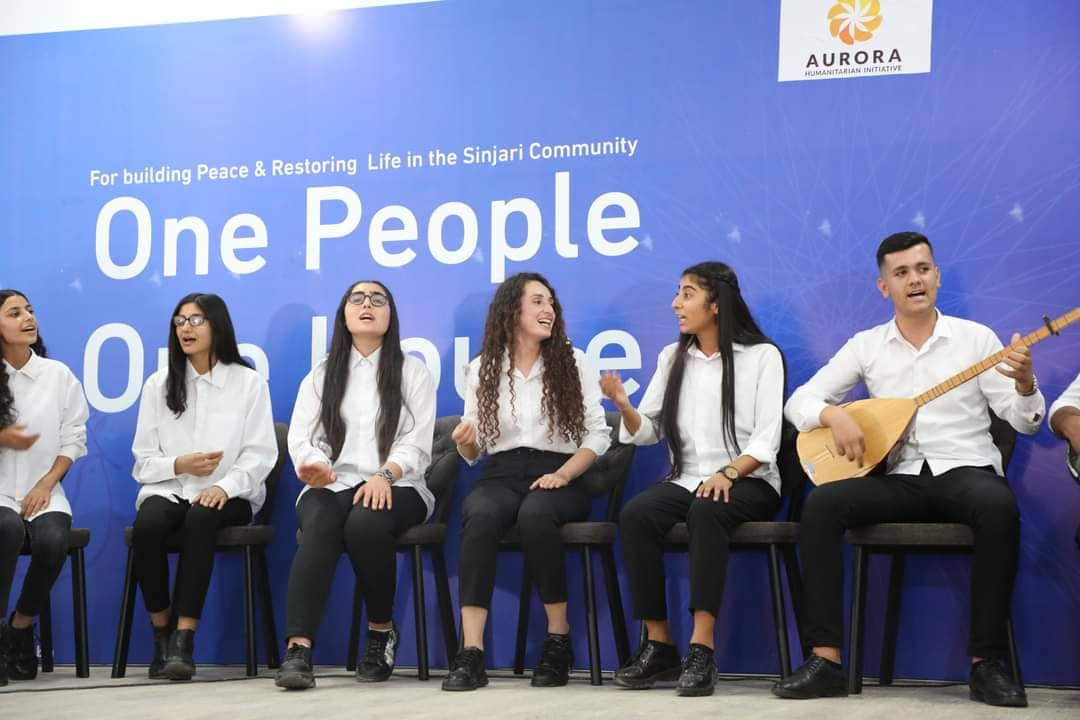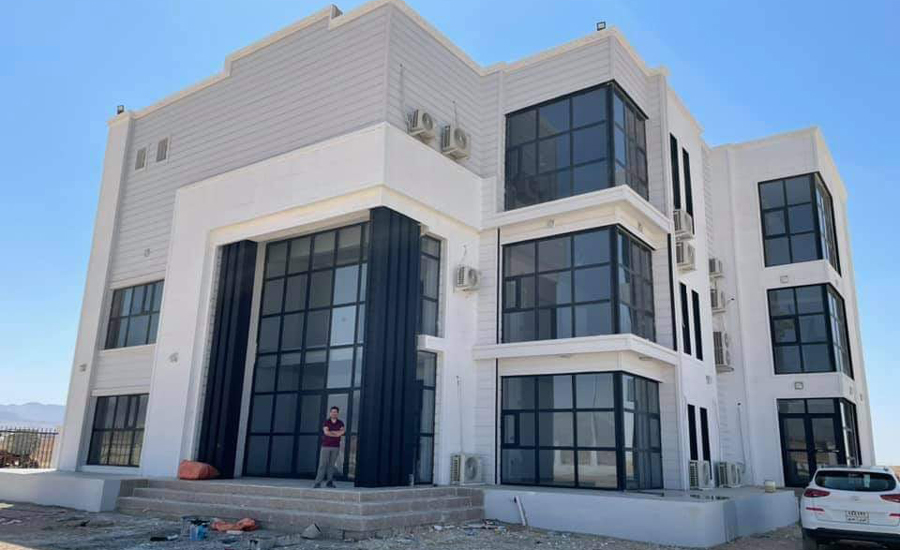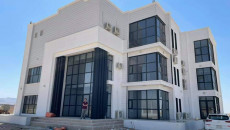Finally, the House of Coexistence was opened in Shingal (Sinjar) district, home for the Ezidi ethno-religious minority in Ninewa province after a year and eight months of continuous work.
The house consists of a cultural and social center and a public platform for the youth of the region from various religious and ethnic components.
Dar Al-Taayesh (House of coexistence) was officially opened on July 23 in the presence of representatives of the components of Ninewa Province and a number of administrative and security officials. The construction of the project was commenced in November 2020 on an area of 1,200 square meters where a three-floor building was constructed.
Mirza Dinayi, the supervisor of the House of Coexistence project, told (KirkukNow), "The opening of the House of Coexistence took place with the participation of Kurds, Arabs, Sunnis, Shiites and Yazidis, and a musical group from the Ninewa Plains attended it."
The opening of the House of Coexistence took place with the participation of Kurds, Arabs, Sunnis, Shiites and Yazidis,
Mirza Dinnayi born in Shingal in 1973, son of Agha for Dinnayi tribe family, is known as the director and co-founder of the Luftbrücke Irak (Air Bridge Iraq), n non-governmental organization NGO which helped over 150 Ezidi victims of the Iraq war, rescued women and children from the ISIS-controlled territories and transferred them to germany, where they received medical care.
In October 2019, Dinnayi received the Aurora Award for Awakening Humanity. As the laureate, he could choose 3 organizations to share the $1 million prize. Dinnayi picked Air Bridge Iraq, SEED Foundation and the Shai Fund.
The area of the project is 1200 square meters: three stores will embrace four conference halls where trainings can be held for rehabilitation of the youth about co-living, beside a café, theatre, Roman theatre and a big garden.

Shingal, located 120 west of Mosul, on the border of Iraq-Syria, is home to the Ezidi minority targeted by ISIS in August 2014 and one of the disputed territories between Baghdad and Erbil.
Seized in August 2014 by ISIS militants whom accused the Ezidis of being “heretics,” Shingal has been the scene of tragedy: a genocidal campaign of killings, rape, abductions and enslavement, amounted to genocide lately acknowledged by parliaments of Belgium and Netherlands.
Thousands of Ezidi women, girls and kids were enslaved and taken as sex slaves. KRG office for rescue of missing Ezidis says 6,417 Ezidis were enslaved by IS when it took over Shingal in 2014 and 2,700 of them have been brought to unknown destiny.
"Our goal in building the House of Coexistence is to ease the wounds of the people of the region and make it a place for all components, in order to restore confidence and promote peaceful coexistence, and our motto is we are all one people and one house," Dinayi says.
"We will work according to this slogan, Dar Al Ta'ayye is a small step to serve the community, and we hope that we will be able to achieve this goal," he added.
Dar Al Ta'ayye is a small step to serve the community
Ezidism is an old Middle Eastern monotheistic ethnic religion and is based on belief in one God who created the world and entrusted it into the care of seven Holy Beings, known as Angels. The ouststanding among these angels is Melek Taus who is the leader and has authority over the world.
Most Ezidis speak Kurmanji, one of the two main Kurdish dialects, however, most Ezidis consider Ezidism a religious not ethnic identity.
Video: Mirza Dianayi receiving the Aurora Prize for Awakening Humanity in October 2019
The opening of the House of Coexistence comes following the war against the "Islamic State of Iraq and the Levant - ISIS", which took control of Shingal district in August 2014, which widened the gap of mistrust between the religious and ethnic components in the region, due to the effects of the war on the ethno-religious minorities, including the Yezidis.
"This house is to serve the community in the fields of general culture, and it will never interfere in political and security affairs," said Dinayi.
The first event of the House of Coexistence is scheduled to take place on August 3, on the anniversary of Shingal massacre and its fall into the hands of ISIS militants in 2014.
"We will hold a special event on that day, and in the following months we will start our activities in the field of coexistence and public culture," he added.
Ezidis are an ethno-religious minority over half a million population, mostly residing in Shingal and Shekhan in northern Iraqi province of Ninewa. The militants of the extremist group of Islamic State in Iraq and Syria ISIS in 2014 attacked their communities accusing them of being heretics, killing thousands of men and taking thousands of women and children as sex slaves.
According to the statistics of the Joint Crisis Coordination Center of the Ministry of Interior of the Kurdistan regional Government KRG, there are more than 664,000 IDPs in the Kurdistan Region, most of them live under tents in 26 camps mainly in Dohuk, in addition to 261,000 refugees.
30% of the IDPs are Ezidis that have not returned to their hometowns for absence of security, stability, reconstruction and reparation, while Christians make 10%.






